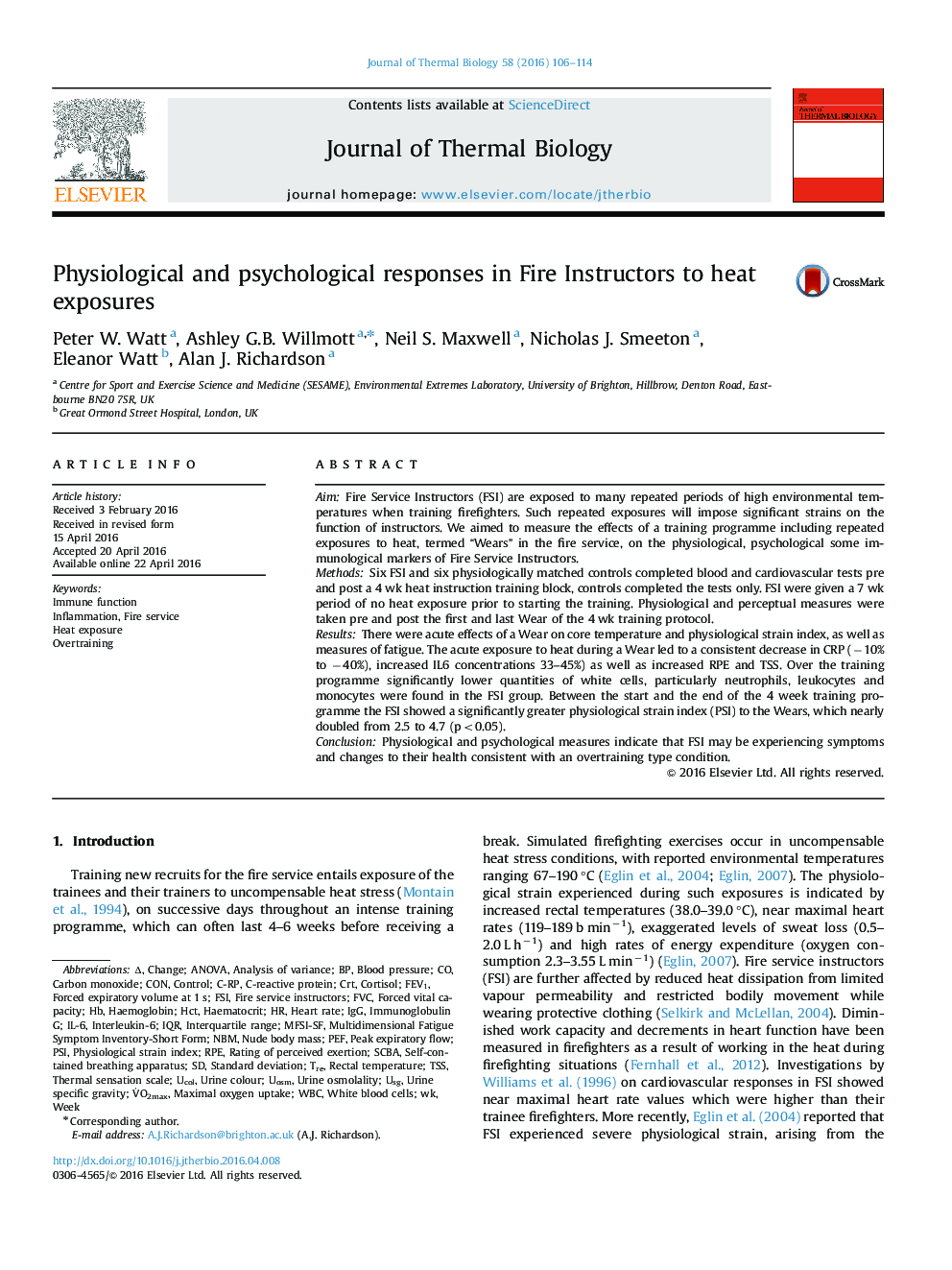| کد مقاله | کد نشریه | سال انتشار | مقاله انگلیسی | نسخه تمام متن |
|---|---|---|---|---|
| 2842665 | 1571088 | 2016 | 9 صفحه PDF | دانلود رایگان |
• Acute and Chronic physiological and perceptual responses to FSI occupational duties.
• Increased IL-6 (33–45%) and reduced CRP (−10% to −40%) response to acute heat stress.
• Chronic training exposure lowered neutrophils, leukocytes and monocytes in the FSI.
• Increased physiological strain towards heat stress after chronic training exposure.
• FSI may experience symptoms and health changes consistent with overtraining and changes to their health consistent conditions.
AimFire Service Instructors (FSI) are exposed to many repeated periods of high environmental temperatures when training firefighters. Such repeated exposures will impose significant strains on the function of instructors. We aimed to measure the effects of a training programme including repeated exposures to heat, termed “Wears” in the fire service, on the physiological, psychological some immunological markers of Fire Service Instructors.MethodsSix FSI and six physiologically matched controls completed blood and cardiovascular tests pre and post a 4 wk heat instruction training block, controls completed the tests only. FSI were given a 7 wk period of no heat exposure prior to starting the training. Physiological and perceptual measures were taken pre and post the first and last Wear of the 4 wk training protocol.ResultsThere were acute effects of a Wear on core temperature and physiological strain index, as well as measures of fatigue. The acute exposure to heat during a Wear led to a consistent decrease in CRP (−10% to −40%), increased IL6 concentrations 33–45%) as well as increased RPE and TSS. Over the training programme significantly lower quantities of white cells, particularly neutrophils, leukocytes and monocytes were found in the FSI group. Between the start and the end of the 4 week training programme the FSI showed a significantly greater physiological strain index (PSI) to the Wears, which nearly doubled from 2.5 to 4.7 (p<0.05).ConclusionPhysiological and psychological measures indicate that FSI may be experiencing symptoms and changes to their health consistent with an overtraining type condition.
Journal: Journal of Thermal Biology - Volume 58, May 2016, Pages 106–114
